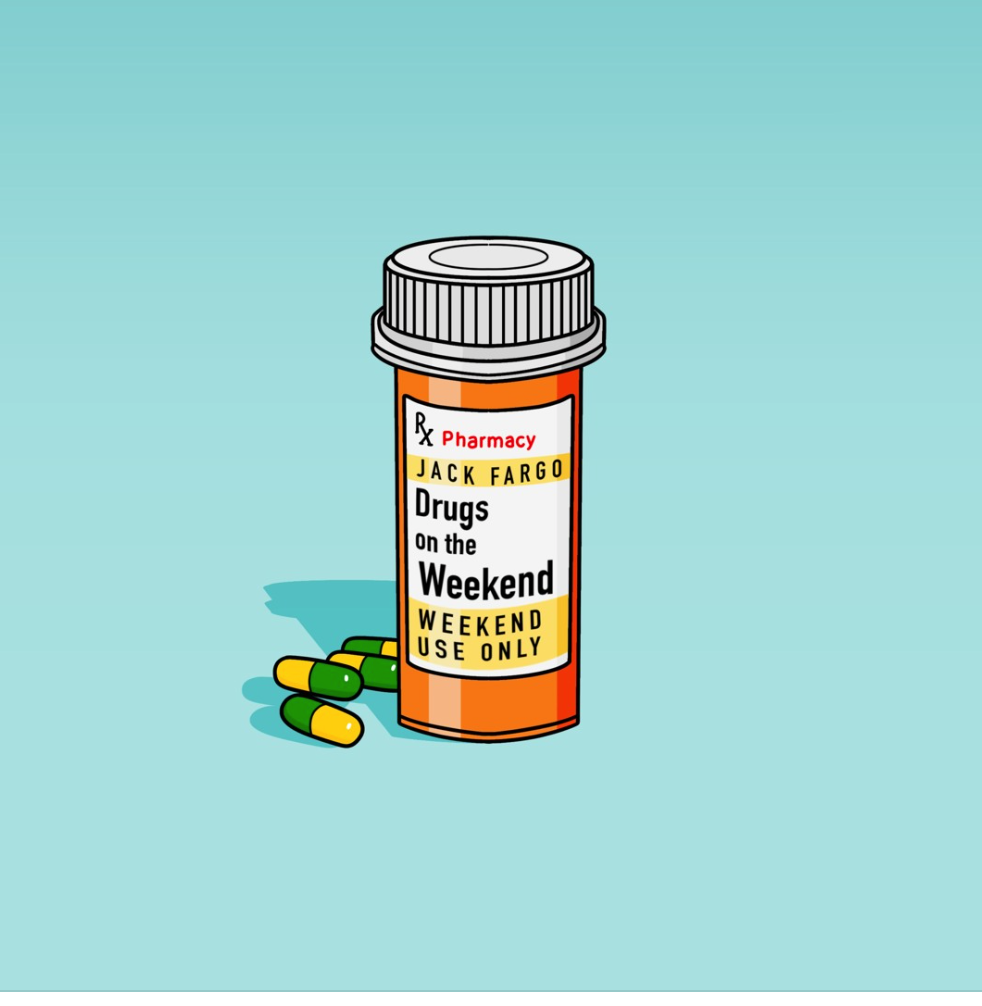Kacey Fifield has never been one to shy away from emotional authenticity. With her latest EP, Seeing Stars, she threads the constellations of heartbreak, healing, and newfound connections with striking clarity. In our interview, Kacey opens up about the spontaneous yet deliberate creative process behind the EP, the emotional tightrope of personal songwriting, and the nostalgic, cinematic weight that closes the collection. She also speaks candidly about her growth as an artist from her teenage years to her college life, and what fans can expect when she brings the project to life on stage. If you’re ready to step into a world where vulnerability meets synth-driven indie pop, this conversation with Kacey is one you won’t want to miss.
Welcome to A&R Factory, Kacey – it’s great to have you with us and congratulations on Seeing Stars landing so powerfully. Seeing Stars captures the emotional weight of love and loss with striking clarity. When you were writing these songs, did you already have a full narrative arc in mind, or did the storyline come together more organically through the writing process?
It was a spontaneous songwriting process, and the storyline became clearer with each song I wrote. “Seeing Stars” tells a story: from the pop-rock opener, “HOLD UR PEACE,” which brutally slams an “addict” to “no commitment” for their mixed signals against guitar shredding and energetic drum fills, to the vulnerable ballad “Right Past Me” which describes a sense of regret over one’s own mistakes in a relationship, all the way to the upbeat, synth-filled “In Between” which depicts the excitement and nerves of connecting with someone new. “secrets” closes out the EP by emphasizing how past relationships continue to impact us as we “cling” onto the memories shared with that person.
Each track offers a distinct atmosphere while keeping the emotional tone cohesive. How did working with multiple producers across different cities influence the sound and cohesion of the final EP?
Working with multiple producers was fun and kept things interesting. Since I wrote all the songs (with a few co-writers), it was relatively easy to keep the emotional tone cohesive. My EP blends the soundscapes of indie pop, synth pop, and classic rock to create a dreamy world focused on the intricacies of falling in and out of love, showcasing the various ways in which we metaphorically “see stars”.
“secrets” wraps the project on a nostalgic and almost cinematic note. Why did you choose this track as the closer, and what made it feel like the right place to leave listeners?
The anthemic melody, nostalgic background vocals, and synth solos in “secrets” create a soundscape that resembles the end of a coming-of-age film and spotlights the lyrics as they describe the process of finding closure and being at peace with the fact that former heartbreaks stick with us over time. I thought that it was a great closing song that would leave listeners emotionally engaged.
You’ve spoken about the escapism of stargazing and quiet reflection. Do those moments still play a big role in how you process relationships, or has writing music replaced that outlet in some ways?
I have always enjoyed quiet moments of reflection. Stargazing, songwriting, playing my guitar or simply walking in the park are all needed outlets in the way I process my thoughts and feelings.
There’s a fine balance in your lyrics between introspection and relatability. Do you ever find it difficult to write something personal while still thinking about how it might resonate with someone else?
I always write personal lyrics and don’t overthink it much in terms of will the song be relatable to others. I find a lot of comfort in the fact that, if I am going through a certain emotion or experience, there are probably other people going through the exact same thing. We are never alone in our feelings or thoughts.
Seeing Stars feels incredibly polished but still emotionally raw. Were there any songs that challenged you more than others to finish, either emotionally or creatively?
Yes, definitely! I feel like I have grown as an artist and this EP reflects that more than anything. The songwriting process was challenging, but so was selecting which songs made the cut. I wouldn’t say there was one particular song that sticks out as especially challenging, but the overall process of shaping my music into a cohesive story for the EP definitely took time.
From Between The Lines to Nostalgia Hunts Me, your discography shows a clear progression. What creative or emotional risks did you take with this EP that you hadn’t in previous projects?
When I wrote my album, I was still a teenager trying to find my way in the music world. Through trying different styles, I found the voice and sound I liked. Both “Nostalgia Hunts Me” and “Seeing Stars” reflect me at a given moment in time as a person and an artist. The progression is me growing up from a senior in high school to a sophomore in college who is documenting life and growing pains. Growing and developing as an artist and writing the music that I want to listen to is key.
You’ve hinted at wanting to bring these tracks to life on stage. What kind of energy or environment do you imagine for a live show built around Seeing Stars, and how do you hope audiences connect with it in person?
Playing my music live is my absolute favorite thing ever! Seeing Stars is definitely a project that requires a ton of energy so there will be loads of dancing, jumping, and audience engagement. I can’t wait to play the songs live!
Find your preferred way to stream the Seeing Stars EP via Kacey Fifield’s official website.
Interview by Amelia Vandergast
Photo credit: Maiya Buck Photography



